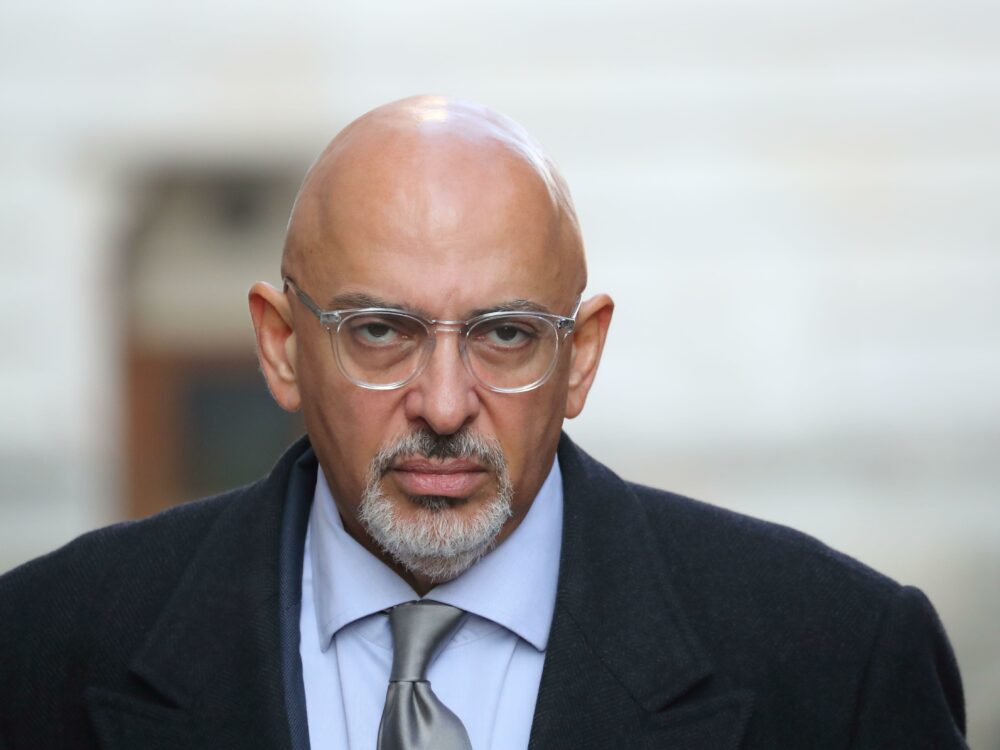The education secretary has accused an exam board of “cultural vandalism” after it removed the work of “two of our finest poets” as part of a drive to make its English GCSE more diverse.
OCR announced yesterday it was adding 15 new “diverse and exciting” poems to its English literature GCSE this September. Its anthology will now include living poets of British-Somali and Ukrainian heritage, and include one of the first Black women in 19th century America to publish a novel.
Of the 15 poets added, 14 are poets of colour, OCR said. They also include disabled and LGBTQ+ voices.
But the Times reported today that poems from John Keats, Wilfred Owen, Thomas Hardy and Philip Larkin have been removed from the list of 45 poems to make way.
Education secretary Nadhim Zahawi tweeted this morning: “Larkin and Owen are two of our finest poets. Removing their work from the curriculum is cultural vandalism.
“Their work must be passed on to future generations – as it was to me. I will be speaking to the exam board to make this clear.
“As a teenager improving my grasp of the English language, Larkin’s poems taught me so much about my new home.
“We must not deny future students the chance to make a similarly powerful connection with a great British author, or miss out on the joy of knowing his work.”
OCR was contacted for comment on Zahawi’s intervention.
‘Inspiring poems part of on-going diversity commitment’
Jill Duffy, OCR’s chief executive, said yesterday they have an “inspiring set of poems that demonstrates our on-going commitment to greater diversity in the English Literature that students engage with.”
From next year, OCR will also add more diversity of works for its English language and literature A-levels.
Duffy added: “Our approach is broad; we want to reflect diversity and inclusivity not just in our qualifications, but in the material we produce to support their delivery, as well as in the assessment of our qualifications.”
OCR said the new texts were chosen with the help of Lit in Colour, an initiative launched by Penguin Random to push for a more diverse curriculum, specialists in English teaching and diverse literature and organisations such as The Poetry Society and Poetry by Heart.
It also has an an equality, diversity, inclusion and belonging (EDIB) advisory board which meets termly “to help OCR achieve our wider aspiration to make our qualifications and our materials accessible, relatable and prepare all students for their future studies and the wider world”.
Judith Palmer, The Poetry Society’s Chief Executive, said: “It’s fantastic to see this new selection of poems from OCR including poets from such a range of backgrounds and identities, writing in such diverse forms, voices and styles.
“We are sure young people will welcome the opportunity to study poems by some of the most striking new voices in contemporary poetry, alongside a refreshing selection of classic texts from diverse authors. These poems will speak powerfully to the experiences of young people today.”
The new poems:
Love and Relationships:
‘Flirtation’, by Rita Dove
‘Poem for My Love’, by June Jordan
‘Lullaby’, by Fatimah Asghar
‘The Perseverance’, by Raymond Antrobus
‘Looking at Your Hands’, by Martin Carter
Conflict:
‘Papa-T’, by Fred D’Aguiar
‘Songs for the People’, by Frances E. W. Harper
‘We Lived Happily during the War’, by Ilya Kaminsky
‘Colonization in Reverse’, by Louise Bennett
‘Thirteen’, by Caleb Femi
Youth and Age:
‘Equilibrium’, by Theresa Lola
‘Prayer’, by Zaffar Kunial
‘Happy Birthday Moon’, by Raymond Antrobus
‘Tea With Our Grandmothers’, by Warsan Shire
‘Theme for English B’, by Langston Hughes








Homage to a Government
appologies to Philip Larkin
Next year we are to bring the poems home
For lack of interest, and it is all right.
Places they informed, or kept educated,
Must inform themselves, and keep themselves educated.
We want the attention for ourselves at home
Instead of thinking. And this is all right.
It’s hard to say who wanted it to happen,
But now it’s been decided nobody minds.
The places are a long way off, not here,
Which is all right, and from what we hear
The writers there only made trouble happen.
Next year we shall be easier in our minds.
Next year we shall be living in a country
That brought its songs home for lack of singers.
The statues will be standing in the same
Tree-muffled squares, and look nearly the same.
Our children will not know it’s a different country.
All we can hope to leave them now is fashion.
From High Windows, 1974
Who does he think he is? This is possibly the worst education minister we’ve had for a long time. Let the exam boards have the freedom to set their own content!!!